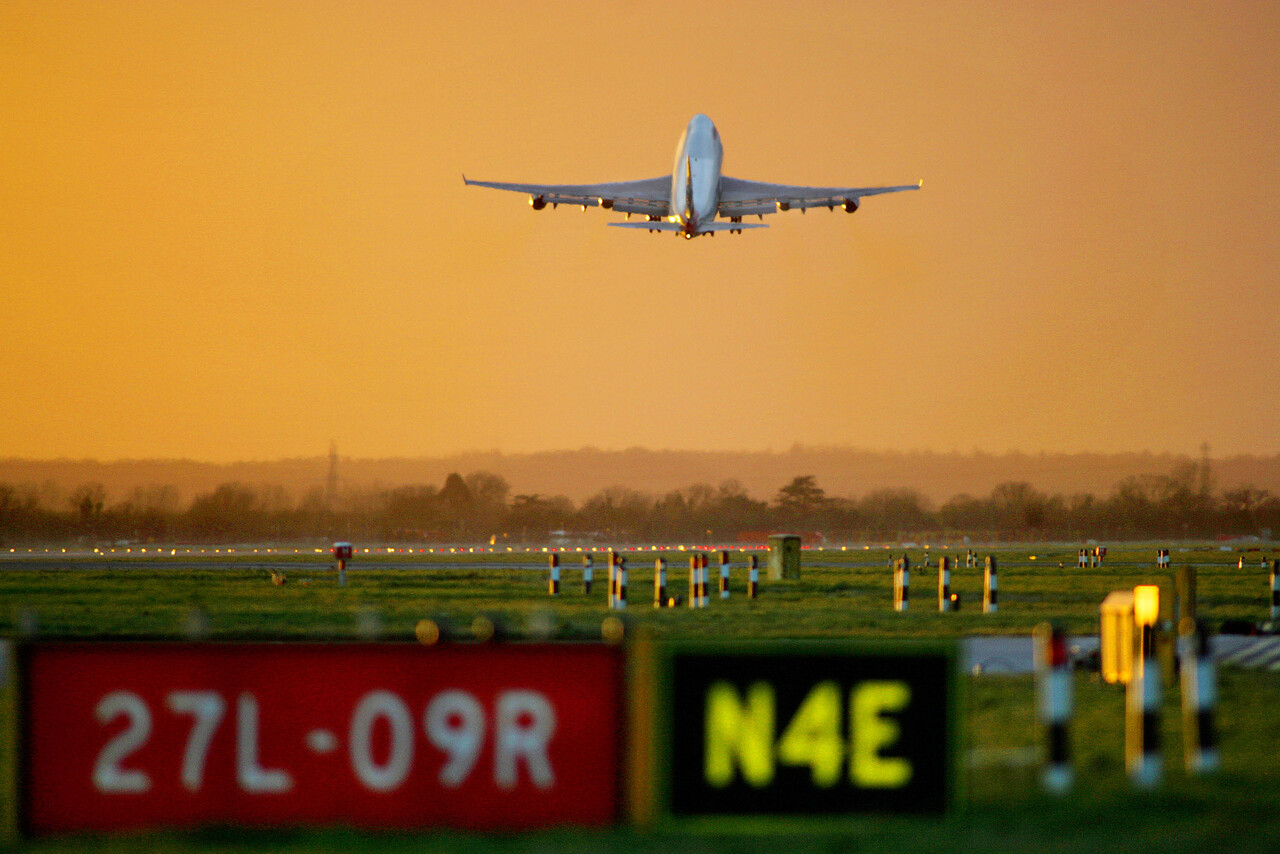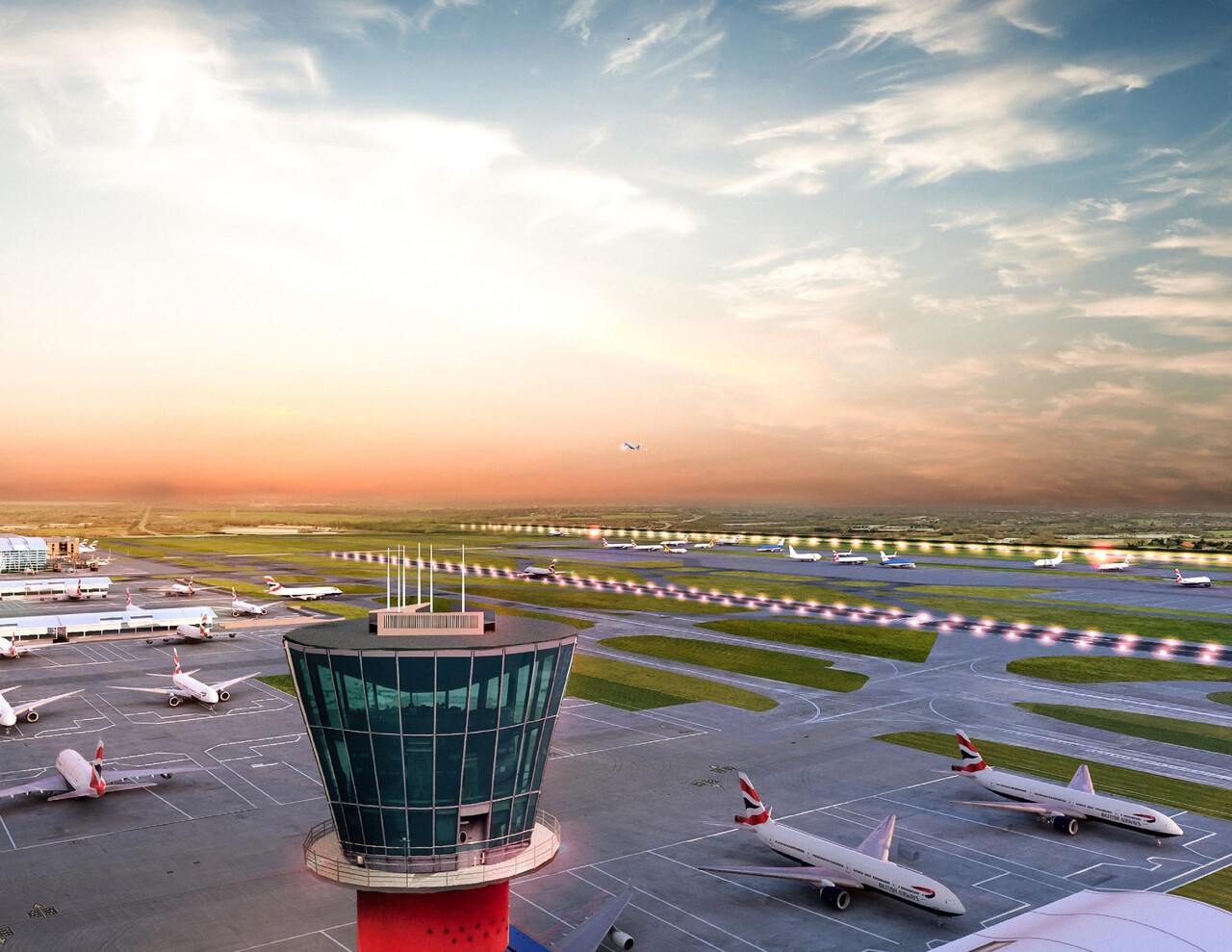- Proposed passenger charge reduction of £10 for domestic services from 1 January 2017
- Supported by increasing environmental charges, incentivising cleaner, quieter aircraft at Heathrow
- Discount part of a package of measures to boost regional connections to the UK’s hub
- The domestic passenger charge for airlines flying from Heathrow would be reduced by a third, from £29.59 today to £19.59, under new proposals announced today by the UK’s hub airport.
With 95% of the global economy within range of a direct flight from Heathrow, the measures form part of a package of commitments designed to connect the UK’s nations and regions to growth markets around the world. The proposed discount would be supported by increasing the total share of airport landing charges recovered through noise and emissions, adding further incentives for airlines to operate the quietest and cleanest aircraft from Heathrow.
As a consequence of Heathrow being full domestic connectivity from the airport has fallen over the years, from 18 routes served in 1990 to just seven today. In its recent report on improving domestic air links with expansion in the South East, the National Connectivity Taskforce identified the need to make routes to regional airports more attractive to airlines. The proposals look to meet the Task Force’s recommendations as part of its regular five year review cycle of Heathrow’s charging structure, whilst also seeking to encourage better utilisation of European slots. They include:
Supporting domestic routes by reducing departing passenger charges by £10
- A £10 departing passenger discount for passengers departing Heathrow to other UK airports, making domestic flights more affordable for passengers. This would support the commercial viability of domestic services which have been squeezed out of the UK’s hub because of airlines having to make tough choices between using their limited slots for domestic or long-haul routes. It would also increase the UK’s competitive position relative to other EU hub airports, which has seen them gain traffic that would otherwise support new long haul routes, jobs and economic activity in Britain.
- £5 departing passenger discount for European destination passengers, from £29.59 today to £24.59. This is expected to encourage fuller planes, making more efficient use of constrained hub capacity.
Encouraging cleaner, quieter planes by increasing environmental charges from 21% to 28% of total airport charges
- NOx emissions charges would almost double from £8.57 per kg of NOx to £16.51 per kg of NOx, encouraging the use of the newest, cleanest aircraft.
- The noisiest aircraft would be charged more. 99% of movements at Heathrow already meet the quietest international noise standards – known as ‘Chapter 4 and Chapter 14,’ and we are actively engaging with airlines to understand their likely timeline for replacing aircraft that operate the less than 1% of movements that are in the noisiest international standard - known as ‘Chapter 3.’ The proposed charge increase is designed to offer a further incentive to support that change, with the quietest aircraft potentially paying up to 20% less per landing than they do today.
Maintaining the transfer passenger discount
- Maintaining a 25% discount on departing passenger charges for passengers transferring through Heathrow to support its role as the nation’s only hub airport – the UK’s gateway to the world and the world’s gateway to the UK
The proposed domestic passenger charge discount forms part of a new package of commitments made in response to the National Connectivity Taskforce’s recommendations. Alongside the review, which takes place prior to expansion, they include measures deliverable after expansion including the establishment of a 10m route development fund for airlines to support five new routes for three years, and partnering with UK airports, LEPs, Chambers of Commerce, national and regional governments to work with airlines to establish new domestic routes through Heathrow.
Airports Commission analysis has already revealed that an expanded Heathrow will deliver up to £114bn in economic benefit outside London and the South East, double the amount that would be delivered by an expanded Gatwick. Taken together the measures have the potential to deliver billions of pounds worth of trade and investment opportunities, reversing a lost decade of connectivity which has seen regional connections to long-haul markets squeezed out of the UK’s hub airport.
Heathrow CEO John Holland-Kaye said:
“We’re serious when we say Heathrow is committed to making sure that businesses across Britain can benefit from the connections to growth markets that only the UK’s hub can provide, whilst incentivising only the quietest and cleanest planes to operate from Heathrow. Our proposal to cut passenger charges by a third for domestic services will help us continue to drive the tourism, exports, inbound tourism and foreign direct investment that supports economic growth across the whole of the UK.”
-- ENDS --
Notes to Editors:
In March Heathrow announced a new package of commitments conditional on expansion enabling up to nine new air links to Heathrow and increased frequency on seven existing routes. These are:
- The review of airport charges to help play our part in keeping existing domestic routes commercially attractive to airlines from January 2017
- Establishing a new Heathrow Route Development Fund. £10 million in start-up capital for airlines to support five new routes for three years
- Partnering with UK airports, LEPs, Chambers of Commerce, national and regional governments to work with airlines to establish new domestic routes through Heathrow.
- Working with government to re-designate public service obligation (PSO) routes to Heathrow, the only airport that can connect them to and through London to growth markets across the globe.
- Working with any organisation that wants to operate Northolt as a satellite runway for UK routes until Heathrow is expanded.
The table below outlines Heathrow’s current airport charges and the proposed changes that aim to boost regional connectivity and encourage airlines to operate cleaner, quieter aircraft at Heathrow:
| Current structure | Consultation proposal |
Overall balance | Environment 21% Passenger 75% Parking 4% | Environment 28% Passenger 68% Parking 4% |
Passenger charge by destination | European Non-European | Europe Non-European |
Passenger charge discounts | None | EU load factor (£5) UK connectivity (£5) |
Transfer passenger charge | 25% discount | No change |
Transit passenger charge | Charged as per transfer passengers | No change |
Basis of landing | Movement
| No change |
Noise charge | Differentiated Chapter 4 | New differentiated Chapter 14 |
Parking charge | Separate free period and charge thereafter for narrow and wide bodied aircraft | No change |
Heathrow does not set ticket prices for passengers. However, there is a reasonable expectation that the savings proposed will be reflected in reduced fares.
The CAA’s regulatory settlement for the current regulatory period imposes a cap on the airport charges revenue that the airport can earn from each passenger and the proposals set out in the consultation document will be implemented within the existing price cap and will be revenue neutral for the airport.
The Airport Charges Regulations 2011 provide that the basis for setting airport charges must not discriminate between airport users. This requirement does not prevent an airport operator for varying airport charges for reasons relating to the public and general interest, including for reasons relating to the environment, where the criteria used for varying the charges are relevant, objective and transparent. An airport operator may set airport charges that differentiate between airport users provided that the reason for the differentiation is relevant, objective and transparent.
To help inform the development of the consultation proposals, Heathrow held a number of informal engagement sessions with the airline community. These sessions were open to all carriers and airline representative bodies.
Interested parties are invited to submit written responses to the proposals outlined in the consultation document by 23.59 on 14 May 2015. Responses may be sent to airlinerelations@heathrow.com or posted to:
Andy Garner
Airline Business Development
The Compass Centre
Nelson Road
Hounslow
Middlesex
TW6 2GW



